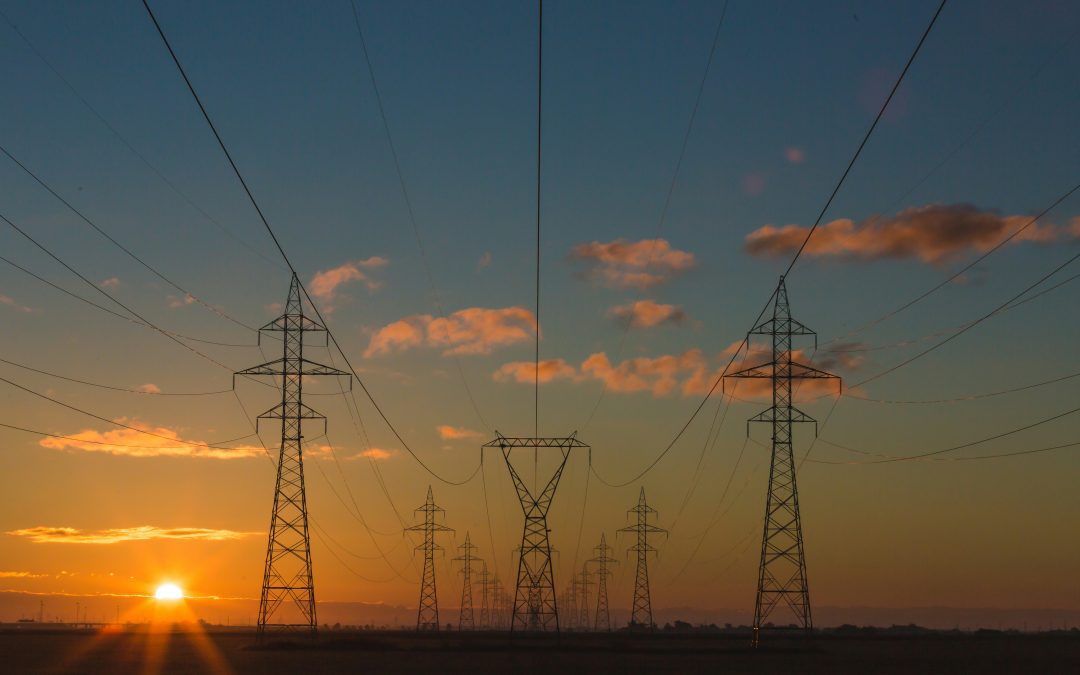This is the complete guide to B2B energy renewal data in 2024. In this article, we will go through exactly what energy renewal data is and what it can do for your business. We have looked at complete guides before at AccuraData. We want to help equip you with the knowledge you need to start using data to grow your business.
On our blog, we have other articles going into detail about various other types of data for your business. As well as useful tips on how to approach your marketing campaigns so that you can get the highest level of benefits from the least amount of expenditure.
What is B2B Energy Renewal Data?
You might already know a little bit about data, if so, you might know about data lists. B2B energy renewal data is a specific kind of data you can buy in lists. Data lists are bought and used by businesses for marketing. They can be used to grow a business’ audience and expand brand awareness.
Specifically speaking, B2B energy renewal data is a type of dataset with specific energy information, such as the customer’s Contract End Date and Energy Supplier. This information allows energy consultants to accurately prospect businesses that are coming up for renewal. Below is an example of some of the key information you may find in B2B energy data.

There is so much to know and learn about data lists. The industry of data is constantly expanding, especially as we become more and more of a digital world.
As there is so much to learn about data, understanding it can take time. It can be difficult especially if you are new to the topic. That is why we write guides to help you get to grips with all kinds of data. We will start with the basics if you aren’t aware of what data or data lists are.
What are Data Lists?
Data lists are simply lists of data. I know, that sounds obvious, anyone can work that out. But, it is true. Data lists are just lists that you can buy, with a collection of useful data on them.
These lists are made up of data which is the contact information of possible customers. Data lists are used within the marketing industry. All kinds of businesses use data lists, across various industries. But they use the data lists when running a marketing campaign.
B2B Data Vs B2C Data
You can buy B2B data lists and B2C data lists. The difference is the type of data within them. B2B data is made up of businesses’ contact details, as B2B stands for business-to-business. Whereas B2C data is made up of consumer data, as B2C stands for business-to-consumer.
Both terms B2B and B2C will appear lots if you read about marketing. Today, more and more businesses are deciding to invest in B2B and B2C data lists. This is because of the great benefits they can have on a business.
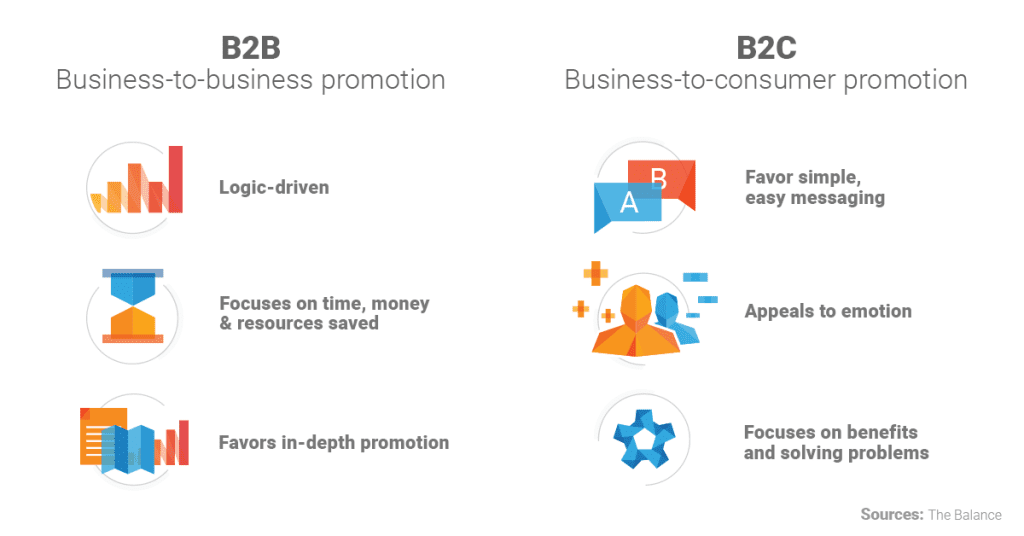
Not only that, but you are missing out if you don’t use data. There are great benefits to B2B and B2C data, however, we are seeing an ever-changing world in business. With a shift to online shopping and digital marketing, having the best, most up-to-date marketing tools are essential. They are what keep businesses on top.
Knowing what data and data lists are, could help you grow your business.
B2B energy renewal data lists are a type of data list. Except, the data on them is more niche. The contact details found on energy data lists are specific to the energy industry. This is because the contact details belong to people whose energy contracts are coming up for renewal. Therefore, they are immediately the perfect customer for an energy supplier.
Benefits of Using B2B Energy Renewal Data
There are lots of benefits to using any kind of B2B or B2C data. However, there are also different benefits to using B2B energy renewal data in 2023.
Tailored Data is Industry Specific
First off, B2B energy renewal data is industry specific. This means that the contact details within B2B energy renewal data lists are so tailored to your industry. As we said before, this means that the data will be of the exact audience you need. Those who are on the data list, are the perfect customer for an energy broker.
Targeting your customers and finding the right audience can sometimes seem unfeasible. The task is daunting if you don’t have lots of experience in it. This is why new businesses can opt for using datasets. They can help get you that audience without the stress.
Save Time and Money
Not only do data lists help actually get you the customers, but they can do it much quicker than other methods. Having a pre-set data list provides you with immediate contacts, in an organised list to reach out to. This can save you or your staff lots of time and hassle. This is the same for any kind of B2B or B2C data list. It is not specific to B2B energy renewal data, but it is a great benefit.
Saving time can then obviously save you money. Data lists are often seen as an investment in the marketing industry. You might spend a little bit finding the perfect data for you. But, once you have it and you use it, you can see the rewards in rising profits.
Instead of paying staff overtime to find all the right contacts, you can give them a premade list. Using B2B energy renewal data lists is a great way to make marketing plans easier. This leads to the next benefit.
Make Marketing Easy
Using energy data lists can make marketing easy. Without the added pressure and stress of finding the right contacts, you can spend time focussing on your marketing campaign. You can make the best, quality content to share with potential customers and spend more time generating leads.
As long as you know that your data is fully legal and GDPR-compliant, you don’t have to worry.
Quality Data
Another benefit of using energy data is the quality of the data. When you buy B2B or B2C data lists, you want good, legitimate, quality data. This means minimal inaccuracies such as copies or outdated numbers.
When you buy our energy renewal data at AccuraData, you can be sure that you are getting the best quality data. We quality-check all of our data before it gets to our clients. That means that the energy data you see is ready to use. We cut out inaccuracies and run checks to make sure you get the best quality B2B energy renewal data.
Grow Your Audience
The next benefit of using B2B energy data is a key one. This applies to all B2B and B2C data lists. All datasets should help you to grow your audience. However, not all datasets will do that. That’s because not all data is the same.
As we have said before, data can be industry specific. If you buy any random data, you are not going to be guaranteed any leads. Whereas, if you buy data that is industry-specific, like energy data, you have better chances. With energy data, you are much more likely to have success with your lead generation. That is, if you require data about potential customers for energy! Obviously, B2B energy data won’t help every business.
Data is like any other product. You buy what is right for you. No one goes shopping and buys the wrong-sized shoes on purpose. We buy what fits and what works for us. Data is the same. Businesses buy data that fits. Finding industry-specific data for your marketing campaign is the way to go.
Enhanced Targeting
One of the main reasons why energy companies use B2B energy renewal data is because it can help them to improve the segmentation of their outreach, allowing them to target their most lucrative prospects. For example, if an energy broker in the West Midlands had their best relationship with British Gas and liked to work locally, they could decide to buy a specific list of businesses based in the West Midlands that are contracted with British Gas. This way, all of the prospects they call from that point will be the customers that bring them the most revenue. This allows energy companies to be more strategic with their time and human resources.
Improved Reputation With Customers
When you use a list of accurate B2B energy data, you will have the key information you need to quote a customer over the phone. Being able to run through everything on the call with the customer and relay accurate information to them about their business allows you to position yourself as an expert in the energy market. This makes the customer more likely to trust you with handling their energy contract, particularly when you consider that the B2B energy market can be viewed by trepidation due to the prevalence of providers that dupe or overcharge their customers. Overall, this makes it more likely for you to close the deal.
Make Sales
Leading on from the last benefit, having industry-specific data to grow your audience will also help to make sales. The more specific the data, the more accurate your target marketing is. If you have the perfect target audience, the chances of you making sales through your marketing campaign is much better.
Lead generation is part of the process. The end goal might be different from business to business. One marketing campaign might be all about raising awareness of a new product launch. This would mean having a goal of increasing hype. Another marketing campaign could be about the launch of your new website. For this, a business will want to drive as many clicks to its new page as possible.
But other marketing campaigns are designed specifically to increase immediate sales. If this is the case, the point of marketing is to teach your audience about your product or service. This means you need to know exactly who your target audience is, to know who you will best sell to.
Use B2B Energy Renewal Data for Marketing Campaigns
We have talked about this a lot already, but it is worth mentioning again. If you are new to the topic of data, you might not have already known. Simply put, B2B energy renewal data is a great addition to a marketing campaign.
If you do not know what a marketing campaign is, do not worry. A marketing campaign is simply a plan of action that businesses carry out. Marketing campaigns are tools businesses use to boost their presence in their industry. It could be for various reasons, some of which were listed above. Usually, the end goal is to grow the brand and increase profits.
Energy renewal data is a great tool to have for a marketing campaign. This is because they give you a list of potential customers to share the campaign with. This is your target audience.
B2B Energy Renewal at AccuraData
Energy renewal data is one of our best-performing products at AccuraData. It sells because it works. Energy data is something we take seriously.
We know that the British energy industry is one of the most competitive in the world. This means that energy suppliers have to do a good job to convince customers to choose them.
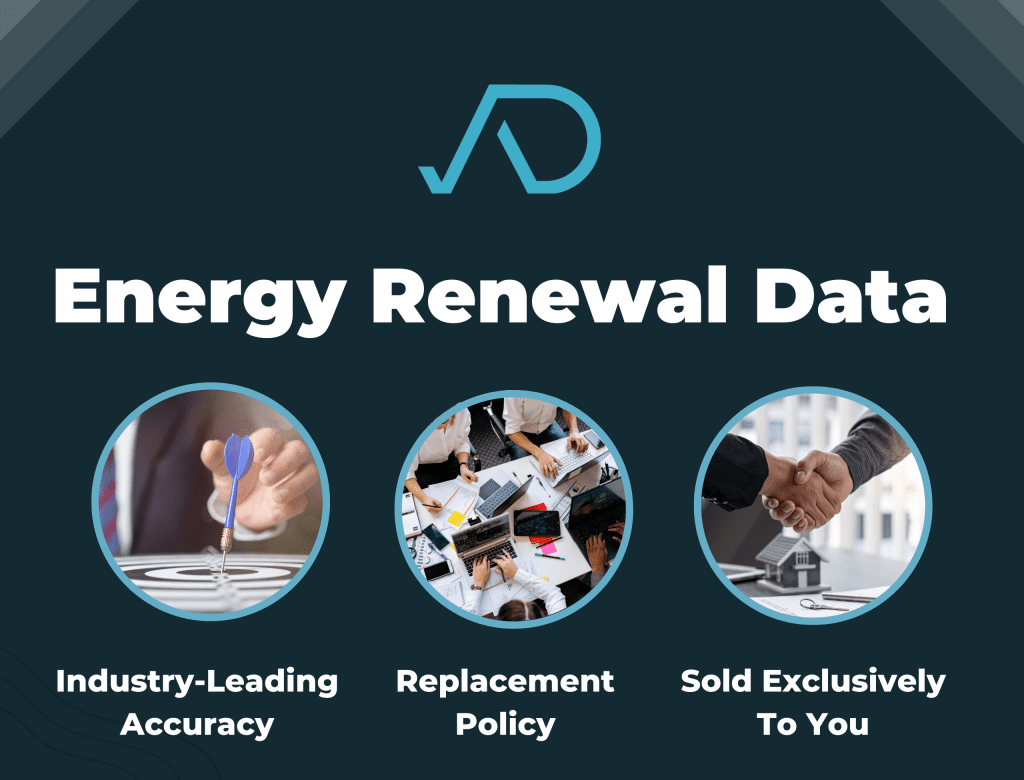
With the current cost of living crisis in the UK and soaring energy bills, so many people are looking at their options. Businesses are considering which supplier will suit their needs. Who can supply them with the best energy at the best price?
The market is huge right now for energy switching. This makes the job of energy brokers both easier and harder. On one hand, you may see lots of new customers joining you if you offer the right deal. However, if your prices don’t match the market, you will see a drop in customers.
What We Do
We supply B2B energy renewal data at AccuraData to help you find your customer base. With our high-quality data lists, you can expand your audience and make those deals. Businesses can target customers who are coming up for energy renewal easily with our datasets.
Not only that, but we want to make sure that you are also getting the best deal, not just your customers. With our data lists, you can have the data filtered so that you get exactly what you want and need.
We know that not every business, even in the same industry, will have the same needs. This is why we give you the option to filter our data to suit you.
Whichever way your business works, we will make the data work for you. So, if you already have set suppliers that you work with and you don’t want that to change, no problem. We can work with that.
Every service we provide at AccuraData is customer focussed. We really care about getting you what you need and making sure that you are involved in the process. There is never a stage we want you to be unsure of. So, we will support you every step of the way.
Quality Data
We have discussed quality data before, but it is key to mention it again. When you buy a product, you want to know you are getting the best quality at the best price. Data is no different. When you are looking to buy data lists, we expect you will be looking around. Maybe comparing different providers. Or check out the price differences.
The point is, whatever you buy, you need to know that you are getting good-quality data. This is more important in the business of data lists than so many things. Making sure that the data you buy is quality checked, compliant and the best it can be is on you. As the customer, you need to know what you are getting.
As mentioned before, we care about our clients. So, we do our job to get you the best energy renewal data. Our energy renewal data is safe and accurate. This is because our data also matches compliance regulations. We perform both compliance and quality checks on the energy renewal data before you even see it.
This will filter out poor-quality data that won’t do your business or marketing campaign any good. Finding the right energy renewal data supplier is a big job. Putting your trust in a business to look after you takes time. So, if you are still not sure, we are always happy to provide compliance information on request. This way, you can rest assured that the energy renewal data that you get is top-notch.
Finding a B2B Energy Renewal Data Supplier
We have looked at quality energy renewal data. But finding the supplier for you is what can get you that quality data. There are lots of different ways to make sure that the supplier you use is good. At the end of the day, you need to know that the energy renewal data you buy is worth it.
The accuracy of data is a big thing. If you buy inaccurate data, it won’t help run a smooth marketing campaign. Poor quality data can result in duplicate and incorrect contact details. If you waste time calling the wrong numbers, you not only waste time and money but also put yourself at risk. There are certain legal problems with cold calling wrong numbers. We will look at this in more detail later.
Response rate is also crucial to watch when searching for an energy renewal data supplier. How quickly does a supplier respond to your emails? Are they helpful when answering your questions? Is what they are saying reassuring? As a business owner, you will have a good sense of what s going on. Get a gauge of character and the ethos of a brand, then decide whether to make a deal or not.
Another question to ask is do they provide compliance documents? If the answer is no, you can immediately cut the supplier off of your list. Don’t do business with suppliers that aren’t willing to show proof that their energy renewal data is compliant. As previously mentioned, we are always happy to share our compliance information with any potential clients that ask. This is because we know our data is good quality, but also, we want you to know that. A good supplier should want to make you feel at ease. Buying energy renewal data is a big step for a business.
GDPR
In the last section, we mentioned compliance. If you have no idea what this is or what it has to do with energy renewal data, then don’t worry. We will look at exactly what this is and what it means for buying energy data here.
All data used by a business must be GDPR-compliant. This is to make sure that the data is legitimate and follows data protection laws. GDPR stands for General Data Protection Regulation. In the UK, we have strict Data Protection laws in order to keep personal privacy protected. Tight data protection regulations were put in place in May of 2018 and have remained throughout Brexit.
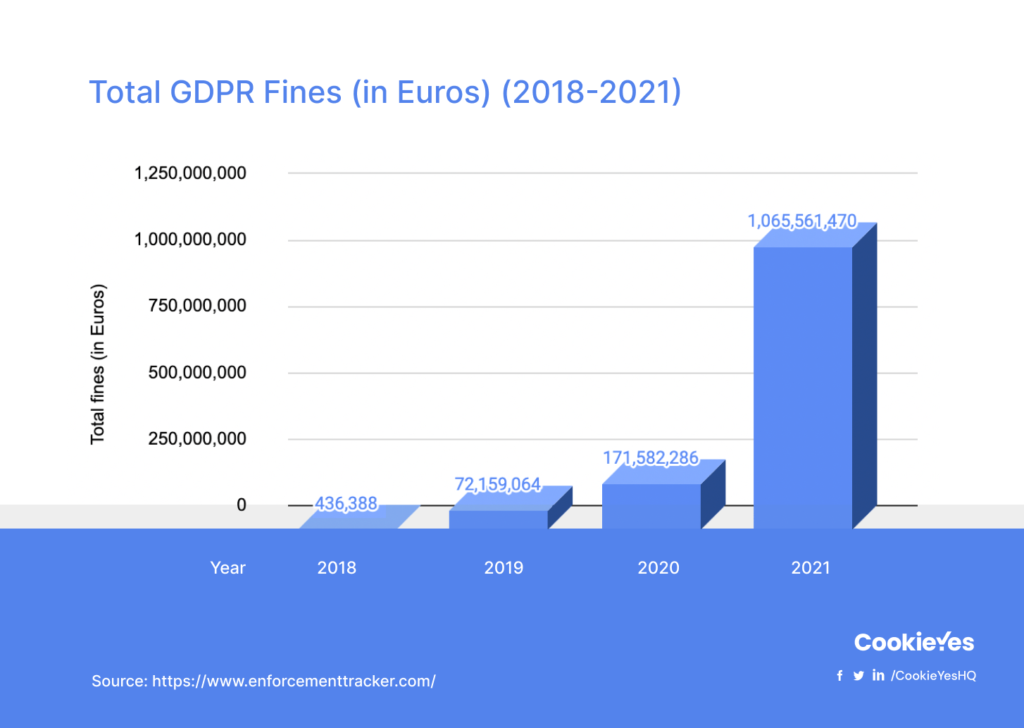
To avoid legal troubles, any data lists that you buy must be GDPR-compliant. This includes energy renewal data lists. B2B data and B2C data must always be completely compliant.
There are lots of resources you can use to understand GDPR better. The government website will talk you through using personal data in your business. There is also a GDPR page available. You can access it to learn what GDPR is and how it fits into the EU’s new data protection laws.
How to Source GDPR-Compliant B2B Energy Renewal Data
We were looking before, at how to check if a data supplier is right for you. You now know you can request to see compliance documentation. However, you might not know another useful tip. If you are unsure about a supplier and want to do your own research, you can.
It is important that you know your supplier is GDPR-compliant. The responsibility is on you to ensure that you do not buy non-compliant energy renewal data. It is in fact, your responsibility to ensure you don’t buy any non-compliant data. This does not need to be a scary pressure. There are ways to make sure you are buying lawfully.
You can check your supplier’s ICO registration yourself. What is ICO? It stands for Information Commissioner’s Office. Every supplier must be registered with the ICO, as it is a legal requirement to do so if an organisation processes personal data.
To check that your supplier is registered with the ICO, you only need a couple of things. All you need is the supplier’s registration number, name, address, and postcode. You can put all of this information into the search engine here and find out if they are registered.
This can take away any extra stress, as you can take matters into your own hands for added certainty.
If you are still slightly unsure and want further clarification on how to source GDPR-compliant energy renewal data, read here. We have shared a guide on how to source GDPR-compliant B2B marketing lists on our blog
Ask For Compliance Documents
Another sure-fire way to make sure that you’re buying compliant B2B energy renewal data is to ask the data supplier for their compliance documentation. This should include documents relating to how they process their data, the methods they use to collect it and how they justify the processing of the data, for example one justification is the ‘Legitimate Interest’ principle. Another crucial document that can provide context for compliance is Data Privacy Impact Assessment, which seeks to balance the rights of the data subject with the right of the business to process the data. Seek these crucial documents when conducting your due diligence.
Query Database Refreshes
Any self-respecting data company will be regularly updating their database, refreshing the information in their datasets to ensure that they are accurate and remain compliant with the latest data protection regulations. There are a couple of ways to identify older datasets, for example if you see suppliers that have long since exited the market in your data, you’ll know that particular record is very old and you would need to query this with your supplier. If this issue is particularly prevalent in a dataset, then you have an incredibly valid reason to be sceptical about the quality of what that supplier can provide for your business.
TPS
We have now looked at GDPR and the importance of having GDPR-compliant energy renewal data lists. We have yet to cover the TPS. You may have come across the word TPS, or maybe CTPS when looking for data lists.
The TPS is another thing you need to be aware of and consider when buying and using any data. It is closely linked to GDPR and data protection laws, so is crucial to understand.
TPS stands for Telephone Preference Service. The CTPS is the Corporate Telephone preference service. Both the TPS and the CTPS are essentially organisations that help to protect personal privacy.
People who do not wish to receive cold calls, can register their number with the TPS. This puts their number on a do not call list. Meaning, if a business does cold call the number, they are at risk of legal consequences.
Personal numbers can be registered with the TPS, whereas business numbers can be registered with the CTPS. It is a free service to use, as neither the TPS nor CTPS charge to register numbers. The process is quick and simple.
Those who are registering a personal number with the TPS are finished after they register. They should not receive cold calls after their number is processed and added to the do not call list. Residential numbers and numbers of sole traders (except in Scotland) do not need to renew their numbers. If you have any questions like these, there is a page on the TPS website that answers frequently asked questions.
However, businesses that register a number on the CTPS, must renew their subscription. Businesses must renew their number every year to stay registered, but the CTPS will contact the business to remind them.
What Happens if you Call a TPS Registered Number
Obviously, people and businesses register their phone numbers with the TPS and the CTPS to avoid receiving cold calls. They will not be happy to receive a cold call once registered. You are upsetting whoever you call if you call a registered number. Not only that, but you also put your business at risk.
There are legal repercussions for organisations that call registered numbers. For each marketing call made to call a registered number, you can find yourself with a £6,500 fine. This can end up with huge fines if you complete high volumes of marketing calls to registered numbers.
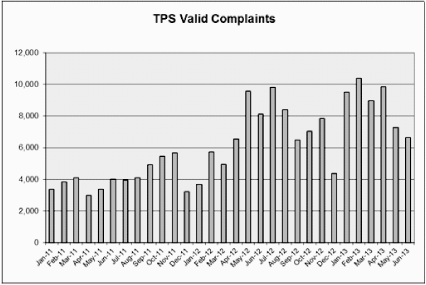
It does happen. There are numerous cases recently where companies have been fined for completing illegal marketing calls. There are several examples on the ICO website that list the companies that have been fined. The ICO will expose the companies and name and shame them by showing the action they have taken.
We also list some of the companies that have been fined in our complete guide to B2C data article.
It will not only be putting your company at risk, but it also won’t help your staff. Anyone calling a registered number could face grief at the other end of the line. You risk upsetting both the individual or business as well as your staff. This is not an added stress that any business should place on its team.
All in all, the risks and reasons to not call registered numbers should put you off. There is no reason why a business should call these numbers or would want to. It will never help a marketing campaign, it will only damage your business’ reputation.
Screening TPS
Why do you have to screen data?
So, we have looked at TPS. We know what the TPS is and what the CTPS is. That will help you when buying energy renewal data. However, the issue does not disappear once you have bought the data. Even if your energy renewal data is TPS or CTPS-checked and GDPR-compliant when you buy it, you can’t take your foot off the gas. The presence of the TPS does not go.
After buying TPS-checked energy renewal data, you must make sure that the data stays legal. If you think about your list, you have so many contact details within the energy renewal data. There will be people behind every piece of data. Every single one of those people or businesses can make a new decision. They could change their mind about who they give permission to use their data.
Someone on your energy renewal data list might decide that they no longer want to receive marketing calls. If this happens, they could register their number with the TPS or the CTPS. This would then mean, that a number on your energy renewal data list, becomes illegal to call. That individual has registered their number to not receive marketing calls, so you must no longer call them.
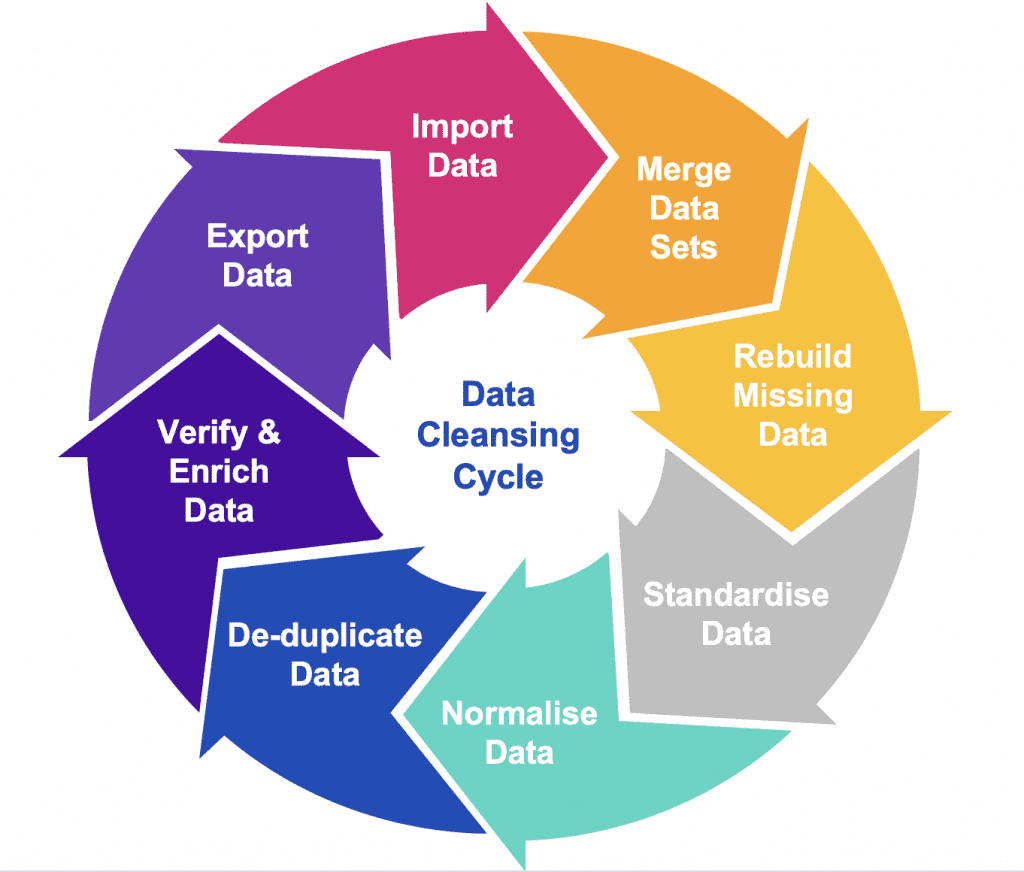
This means that your data list can very quickly become outdated. Data is very quick moving. It can always change. This is why you must keep your energy renewal data checked. That is where data screening comes in. There is also a level of respect that must be maintained for your potential customers. As with any kind of respect, this goes beyond just the first sale. Businesses must work hard to keep the wishes of their customers at the forefront of their actions.
What is Data Screening?
Data screening is the process of making sure that all of your data is still GDPR-compliant and TPS-checked. Any data that has been bought, even if already TPS-checked and GDPR-compliant, must continue to be screened. This is in order to ensure your energy data is not breaching any laws. Data screening is therefore an essential part of data protection.
Energy data and all other kinds of data lists must be screened regularly. They need to be screened every 28 days. This is because this is the period of time it can take for a number to become registered. It is the minimum time frame to screen every 28 days, so you can screen more regularly.
When a person or organisation registers their number on a do not call list, it appears in roughly one month. Therefore, any numbers on your energy renewal data could become outdated within a month of last being checked.
Data screening is also often referred to as data cleansing. The process can also just help to make your energy data a more quality data list. When your data is cleansed or screened, it can also cut out poor-quality data. This could be duplicates or inaccuracies, as well as TPS or CTPS registered numbers.
You might think this sounds like a big ask. Having your energy renewal data does not have to be difficult. When you find a good supplier, you can often stick with them to keep cleansing your data. Or, if you have a bad experience with your supplier, you can look for another company that can do the cleansing for you. The stress is not on you to do all of the checks. You just have to organise who will cleanse your data for you.
What Happens if I Don’t Screen my B2B Energy Renewal Data
There are so many reasons to screen your data, and the stress of it should not put you off. It is a commitment to buy B2B energy renewal data, but it is worth it for so many. Make B2B energy renewal data work for you, not the other way around.
One of the obvious key reasons why you should always screen your energy data is because it is the law. There is no questioning this. Screening data is not a choice. Every business using B2B energy renewal data lists must screen their data at a minimum of every 28 days.
Fines
When there is a law, there is a punishment. If a company fails to screen their data, it can face legal punishment and fines. The organisation enforcing the law is not the TPS, it is actually the ICO. As explained before, the ICO is the Information Commissioner’s Office.
The ICO fine you between £5,000 and £500,000. This is something no business wants to face. The simple answer is to just regularly screen your energy data.
Respect
Another reason to screen your data lists is for respect. We have talked about this before, but it is an essential part of using data. No business should treat their customers or potential customers with no respect. Just because you see data, it does not mean that it is not connected to an individual or organisation.
When you fail to respect people in business, you earn a bad reputation. Some people argue that any press is good press, but when it stops customers from buying from you, it is bad.
Having a bad reputation for failing to respect personal privacy is a no-go. It immediately tells people that this is a business they do not want to be associated with.
Name and Shame
When companies do breach data protection laws it is not just the law they should worry about. There have been so many recent cases where a company has been outed for making marketing calls to TPS-registered numbers.
There are dedicated sites that expose these companies for their acts. This might come as a shock to some. Data protection is a big thing and lots of people value this highly. Therefore, companies that break data protection laws get named and shamed.
You can find some examples of these companies that have broken the law being exposed on the ICO website. They have an ‘action we’ve taken’ page that lists all of the recent cases.
Potential to Lose Supplier Relationships
Certain energy suppliers can be incredibly selective about the businesses that they work with to provide them with business. If as a broker, or Third-Party Introducer (TPI), you keep bringing problems to the supplier, such as TPS complaints, nuisance calling or other potential data protection issues, the supplier could very well simply decide to terminate your relationship with them. This means you won’t be able to place contracts with that supplier, which could drastically impact your revenue. This is another reason why it’s important to regularly refresh and screen your database.
Reputation
The final reason why you should always screen your B2B energy renewal data is all about reputation. A business’s reputation is its selling point. It links strongly on from the last point. When a company has been named and shamed, its reputation is damaged. We have looked at this before and the idea of all publicity being good publicity. But as we know, this is not the case when it comes to breaking data protection.
Customers know when there is no respect. If your audience learns about poor data protection, the reputation that you have built for your brand is lost. The only reputation you have left is a bad one.
Complaints will be made if you fail to regularly check your database. Keep your B2B energy renewal data safe and usable by having it screened.
There are so many reasons to always have your energy renewal data screened. Do not let your business become featured on the ICO website. That is not the marketing you should aim for.
Screening at AccuraData
At AccuraData, we not only sell energy renewal data, but we also screen data. We can cleanse the data you bought from us. Or, we are also happy to cleanse any data you bought from another supplier. We love to keep our customers satisfied, but we are also always happy to see new faces.
Step 1
Our cleansing or screening service takes your database in and returns to you a polished, shiny version! The process involves just a few steps. To start, just get in touch with us. Let us know if you are interested in our services. When you contact us about data cleansing services, please make sure that you tell us a couple of things. First, let us know the number of records that you want us to screen. Then, please also tell us how you want to have the data cleaned.
Step 2
After this first point of contact, we will get back to you with an invoice for your commission. Once we receive the payment, we start the cleansing process. We start by running the data you sent us through our system. Then we cleanse it to your required specification, as specified in the first point of contact. It is that simple.
Step 3
Once your data has gone through our system and been cleansed, we will then give you a report. This is to show you exactly what we have done. The report shows both how the data has been cleansed as well as what your data should now look like.
Step 4
Our final step to the process of data cleansing is handing it back to you. The cleansed data gets delivered back to you, through our secure portal. This is to make sure that the information being sent is protected. Again, this is due to the fact that we are handling data. So, it must be done in compliance with GDPR.
Examples of ICO Case Studies
We have talked about ICO case studies before. But we will look at one here, to show exactly what can happen to a business.
A very recent example shows just what happened when a business broke the law. Interserve Group Limited has been outed to have broken the law, as recently as the 24th of October 2022. This was reporting on an incident that took place between the 18th of March 2019 and the 1st of December 2020.
The company “failed to process personal data in a manner that ensured appropriate security of the personal data”. It did not use appropriate “technical and organisational measures as required by Article 5(1)(f) and Article 32 GDPR”. This resulted in a cyberattack on up to 113,000 employees of its own employees.
The penalty has been set at £4,000,000. To find the full document about this case, click here.
This is just one example of many. On the ICO website, there are plenty of examples where companies have been fined for calling TPS-registered numbers. We have also written about some examples in our blog post here.
Conclusion
There are a few things to remember. Make sure that you buy your data from a good, legitimate provider. We have written an article all about how to find the best B2B data provider for you.
Make sure that any data you buy, not just energy renewal data, is GDPR compliant and fully TPS and CTPS-checked. This is crucial to avoid legal problems.
In summary, there are so many benefits to using energy renewal data. Whatever you think energy renewal data can do for you, try it. See what it does for your business. Beat your competitors who have yet to find the data that is right for them! Join the others in your industry already using data lists for their marketing campaigns.
We hope you find the right provider for you. Good luck on your energy renewal data journey!

